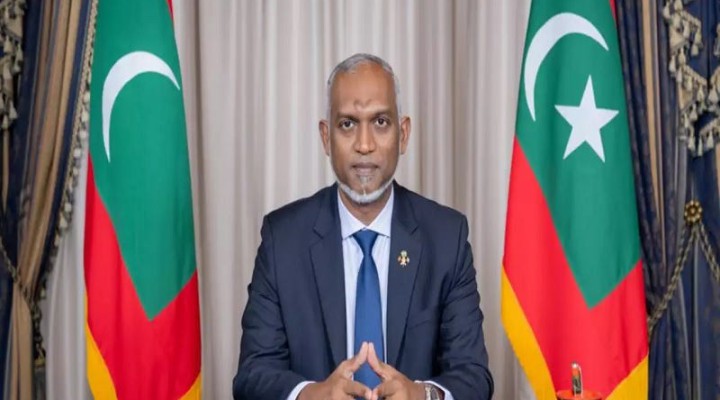The Maldives’ New Leader Is Responsible For The Dilemma That He’s Found Himself In

He risks losing the support of the “India Out” movement that propelled him to power if he switches gears to improve ties with India but not doing so risks the opposition’s further solidification and strengthening.
Indian media reported that their compatriots are canceling planned vacations to the Maldives out of solidarity with their nation following the unprovoked insults that three officials from that country’s new administration hurled at Prime Minister Modi after his trip to the union territory of Lakshadweep. They were suspended shortly after their tweets provoked an international scandal and the Maldivian Foreign Ministry distanced itself from their remarks, but the soft power damage was already done.
The Maldives’ new leader, President Mohamed Muizzu, is responsible for everything that just took place. He incorporated anti-Indian demagoguery into his election campaign in order to tap into that vote bank and then remained committed to “decoupling” these historical partners after coming to power. He snubbed India twice already by visiting Turkiye and now China without planning any trip to that country like new Maldivian leaders have traditionally done as their first foreign one after inauguration.
Furthermore, Muizzu hyped up the presence of less than 100 Indian servicemen in his country who are mostly engaged in training and maintenance activities, demanding their withdrawal as part of the campaign promise that he made to the “India Out” movement during the elections. The sequence of events that he initiated emboldened like-minded members of his new administration to speak recklessly about their larger neighbor without thinking about the potential economic costs of their words.
Had he proceeded carefully without spiting India at every opportunity, then his fellow officials would have realized that this policy is being pursued in the more comparatively “pragmatic” manner of negotiating a “dignified divorce” then “dramatically dumping” it like he ultimately chose to do. Accordingly, they might have thought about the damage that their tweets could inflict on already troubled bilateral ties, which would have made them and the consequent boycott a lot less likely.
To be clear, Muizzu’s planned rapid “decoupling” of Maldivian-Indian relations with no care about the mutual costs isn’t supported by all his people since former officials, the opposition, and members of civil society rose to condemn this radical policy that risks ruining mutually beneficial ties. They informed the Indian public via their tweets and engagement with the latter’s media that his views only reflect the “India Out” movement’s, not average Indian-loving Maldivians’ who’ll suffer from this boycott.
Their noble efforts have a chance of prompting Muizzu to rethink the wisdom of his radical policy, or at least the rapid pace at which he’s implementing it without any concerns about the consequences, so that he scales it back and tunes it down in order to return ties back to a more manageable track. The dynamics are beyond the control of state-to-state relations right now due to Indian society’s decision to boycott the Maldives out of solidarity with their nation absent serious policy changes from that country.
He’s therefore caught in a dilemma entirely of his own making since he risks losing the support of the “India Out” movement that propelled him to power if he switches gears but not doing so risks the opposition’s further solidification and strengthening. The first could accuse him of “betrayal” while the second could be driven by economic desperation, and both scenarios could lead to rowdy protests that require forceful crowd control measures, which might further worsen anti-government sentiment.
None of this would be happening had Muizzu pragmatically negotiated a “dignified divorce” with India instead of “dramatically dumping” it and spiting the Maldives’ top partner at every opportunity. He emboldened bonafide anti-Indian extremists within his government while provoking what might soon prove to be a very costly boycott by Indian society. His best option is to prioritize repairing bilateral relations, but ideologues like him don’t usually admit their mistakes, so he might very well double down.
https://korybko.substack.com/p/the-maldives-new-leader-is-responsible
 TheAltWorld
TheAltWorld 
0 thoughts on “The Maldives’ New Leader Is Responsible For The Dilemma That He’s Found Himself In”